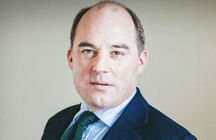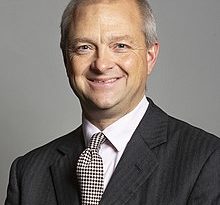Ben Wallace – 2022 Statement on Ukraine (September 2022)
The statement made by Ben Wallace, the Secretary of State for Defence, in the House of Commons on 5 September 2022.
It is good to be back after the summer recess, and it is good to see you in your place, Mr Speaker.
I want to update Members about progress in Ukraine and UK support to date since the House rose for the recess. On 29 August, Ukraine embarked on a counter-offensive in the south of the country, around the city of Kherson on the west bank of the Dnipro river. As part of the shaping fires, Ukraine has inflicted serious damage on a range of river crossings with the aim of restricting Russian logistical support. That has had considerable success. I can report to the House that the Ukrainian forces have made real progress, assaulting on three axes, and especially on the advance to the south of the city of Kryvyi Rih. The grinding fight in the Donbas continues, but with Russia making few substantive gains in the east over the past two months. Since June, Ukraine has struck more than 350 Russian command posts, ammo dumps, supply depots, and other high-value targets far back from the frontline. Many of those have been with longer-range weaponry supplied by international partners, including the United Kingdom.
As of today, the Ukrainian army is engaging with Russian forces using both artillery and brigade-level operations. It is making real gains, but understandably, as we have seen elsewhere in this conflict, the fighting is close and hard, and Ukraine is suffering losses associated with an attacking force. My thoughts, and the Government’s thoughts, are obviously with the men and women of the brave Ukrainian forces who are fighting to uphold our values as well as theirs, and to defend their land. However, Russia continues to lose significant equipment and personnel. It is estimated that to date more than 25,000 Russian soldiers have lost their lives, and that, in all, more than 80,000 have been killed, have been casualties, have been captured, or constitute the reported tens of thousands of deserters. This will have a long-lasting impact on Russia’s army and its future combat effectiveness. Russia has yet to achieve any of its strategic objectives, and we are now on day 194 of what was expected to be a month-long campaign.
I know that Members will be worried by reports about the Zaporizhzhia nuclear power plant, which is the biggest nuclear power station in Europe. On Friday 1 September, the United Nations International Atomic Energy Authority visited the plant accompanied by Russian media. No other international media were allowed to attend. Under the IAEA, an inspection was carried out, and the agency has left a team behind. It has already drawn attention to the violation of the plant’s “physical integrity”, and the United Nations remains gravely concerned about the dangerous situation in and around the plant. We will continue to monitor it, and ensure that we engage with Ukrainian partners to ensure that no one’s safety is put at risk.
Earlier in the month, Turkey, Russia and the United Nations came to an agreement on grain exports from Ukraine; the so called “Black sea initiative” was put in place. This has now seen over 2 million tonnes of grain exported, with another 100 ships waiting to embark with grain from Ukraine’s ports. I want to place on record the Government’s thanks to both the United Nations and the Turkish authorities for facilitating this—it was no mean feat. We have offered the Turkish military any support they require; to date, the Turkish Government have not requested any support, but we stand ready to do that. The United Kingdom continues to gift military aid to the Ukrainian armed forces to help resist the illegal invasion. Since the end of July, when this House rose, we have gifted a further three M270 guided multiple-launch rocket system platforms, and accompanying missiles. We are now working on an additional package of support. The total funding committed to this support is £2.3 billion.
In June, I recognised that training is as important as military hardware, which is why we embarked on establishing a network of training camps in the UK to train 10,000 Ukrainians. That was accompanied by specialist armed training across a number of countries in Europe. So far, we have trained 4,700, and I am delighted that over the summer we were joined by forces from Sweden, Finland, Denmark, Lithuania, Canada, Holland and New Zealand; they are all now in place alongside British military personnel delivering that training. The training cycle is now in its third iteration and, after lessons learned, we have now extended it to a five-week syllabus. We are already seeing this make a difference to the combat effectiveness of Ukraine, and we are evolving the course and feedback to make sure that the experiences do exactly what the Ukrainians need.
Support for Ukraine goes beyond the here and now. Being able to plan for the medium and long term requires international funding. So at the beginning of August, at the invitation of our Danish friends in the Danish Government, I co-chaired with them a conference in Copenhagen. So far, we have amassed pledges of up to €420 million of support, including through an international fund for Ukraine. We are working through the governance of the fund with our international partners and we hope to add to it when I present more details this week to the Ukraine defence contact group convened by the United States in Germany on Thursday. The fund will be used hopefully to support a range of measures, including ammunition production, to ensure that there is a sustainable supply over the long term in Ukraine.
I would like to place on record my appreciation of the Prime Minister’s enduring support for Ukraine throughout the process, without which a lot would not have been possible. I am grateful, too, for all the support of all the parties in this House for the action we have taken. That allows us to lead on the world stage with determination and a focus on all the things that are right about Ukraine’s defence from an illegal invasion and on the fact that we share such common values of freedom, and respect for sovereignty and the international rule of law. I hope all of us in this House do so—I know from experience that we do so. This Government’s commitment to Ukraine remains unwavering and enduring, and I commend this statement to the House.


